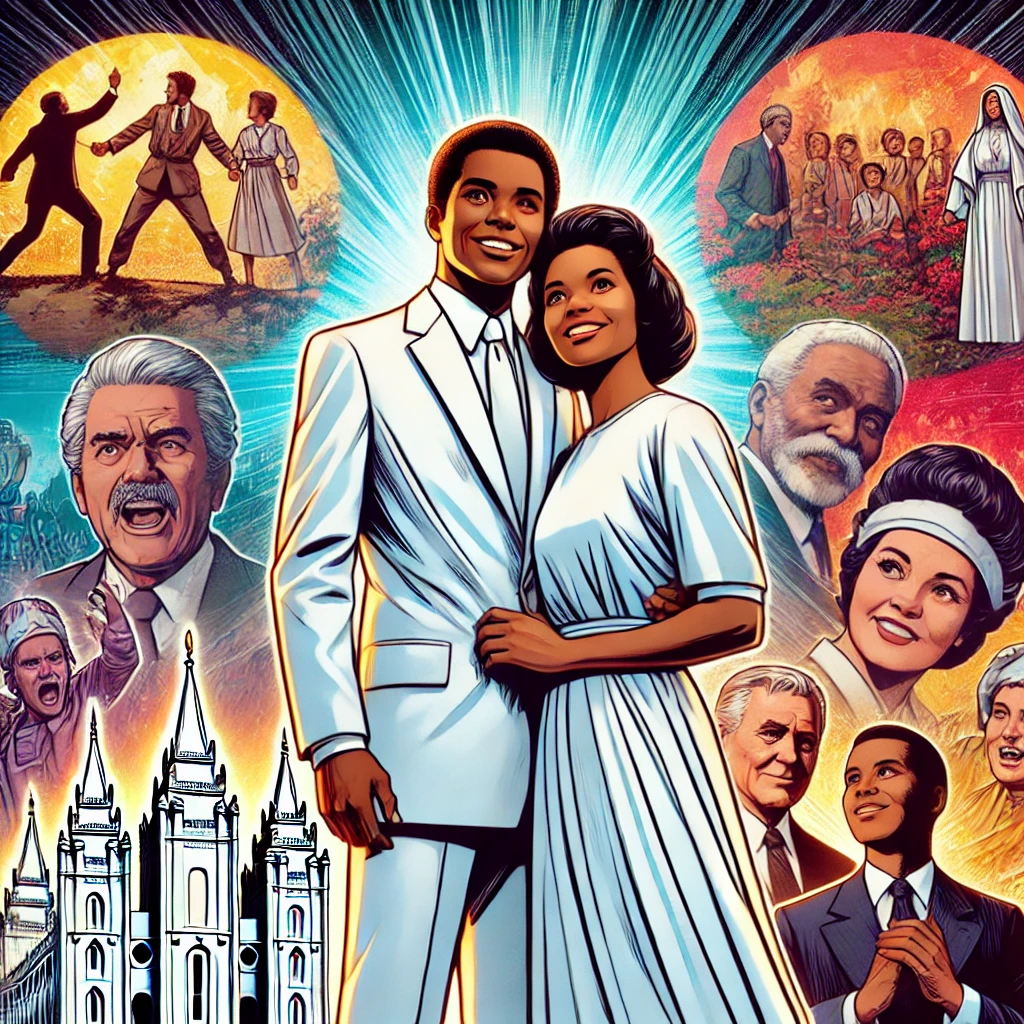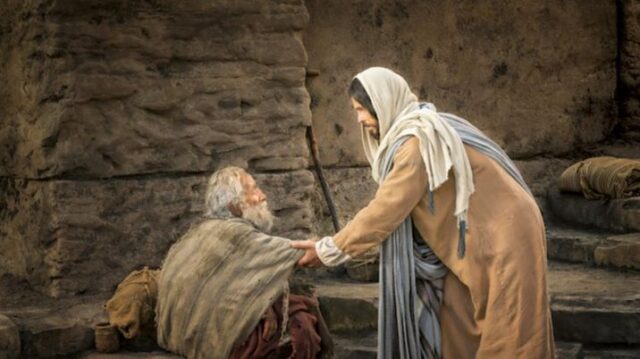The Church of Jesus Christ of Latter-day Saints has recently released new lessons for children about Joseph Smith and the origins of polygamy. I thought it would be useful to tackle another difficult topic – “Race and The Priesthood“:
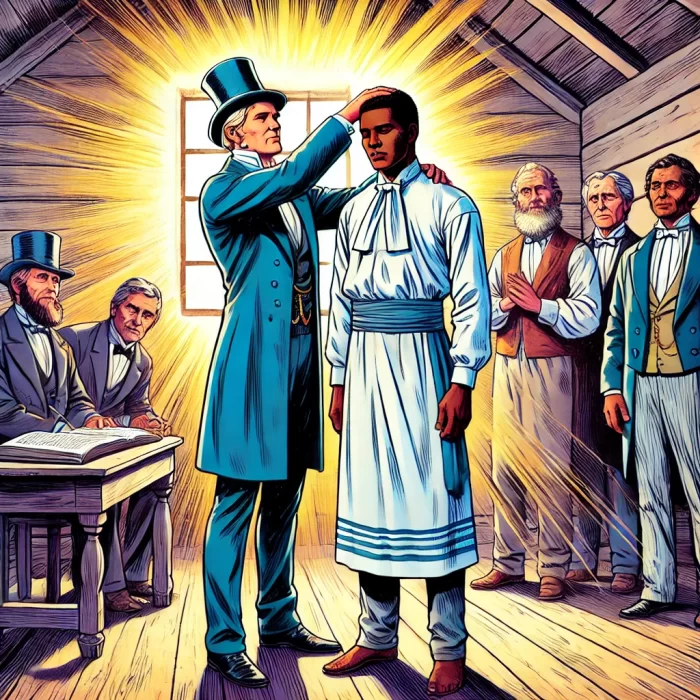
Elijah Abel, a Black pioneer and early member of The Church of Jesus Christ of Latter-day Saints, was personally ordained to the priesthood by Joseph Smith in the 1830s. This moment marked an important chapter for Black members in early Church history.
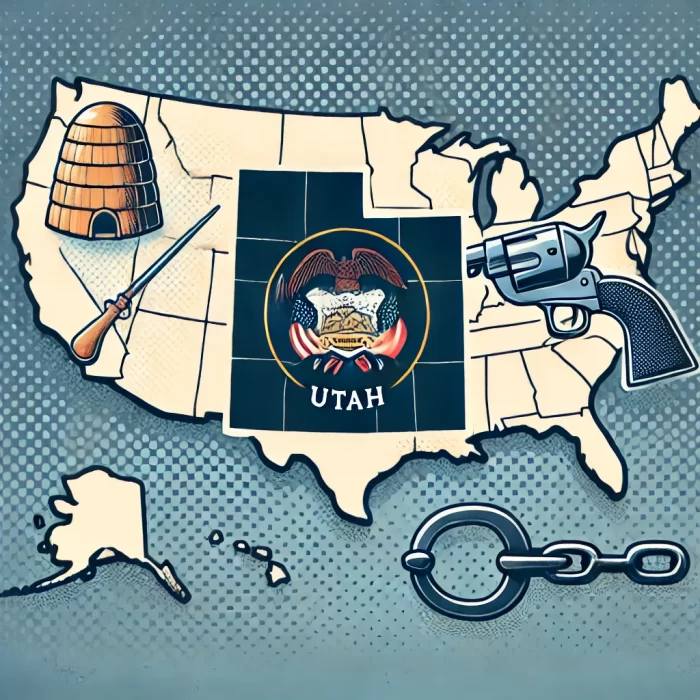
In the mid-1800s, slavery was a harsh reality in the United States, including in the Utah Territory. In 1852, the Utah Territorial Legislature passed the ‘Act in Relation to Service,’ allowing slavery in the territory, a decision supported by some Church leaders, including Brigham Young.
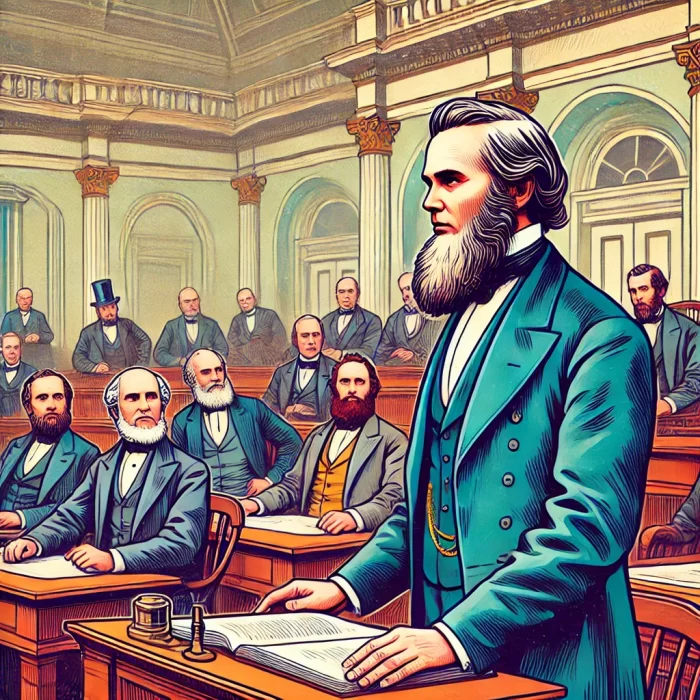
In 1852, Brigham Young publicly declared that Black men could not hold the priesthood, a policy that excluded Black members from temple worship for over 120 years. This decision profoundly shaped the experiences of Black members and the history of the Church.
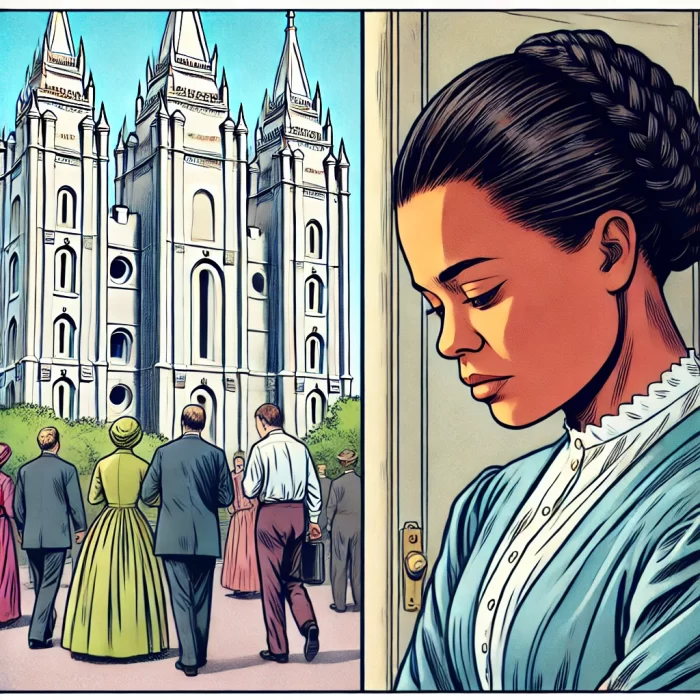
Jane Manning James, a devoted member of the Church and beloved by Joseph and Emma Smith, was never permitted to enter the temple during her lifetime. Despite her deep faith and contributions, she was sealed, by proxy, to Joseph Smith as a servant—a reflection of the painful exclusions Black members faced under Church policy.
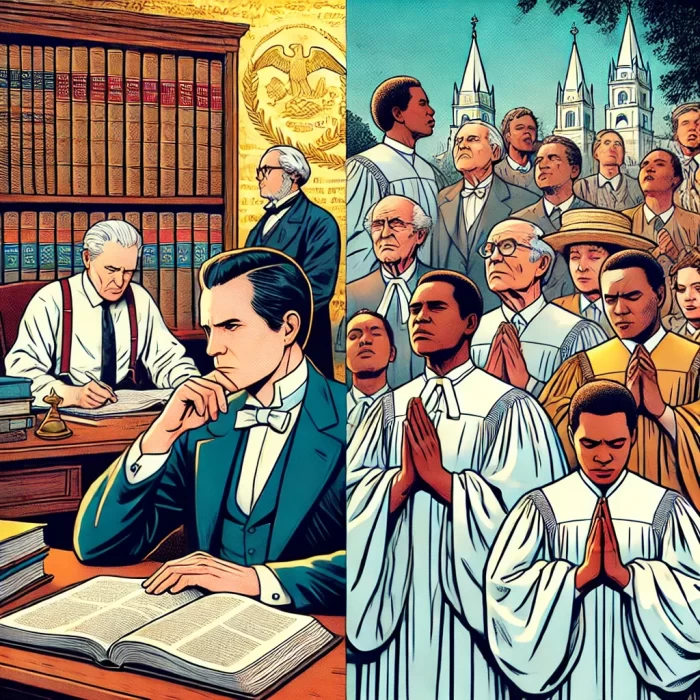
During the 19th and 20th centuries, Church leaders, influenced by societal norms, debated and reflected on the restrictions placed on Black members. Incorrect doctrines, such as the belief that Black people were ‘less valiant’ in the pre-existence or cursed through the lineage of Cain, were used to justify exclusion. While these teachings caused significant harm, African members remained faithful, praying for understanding and inclusion.
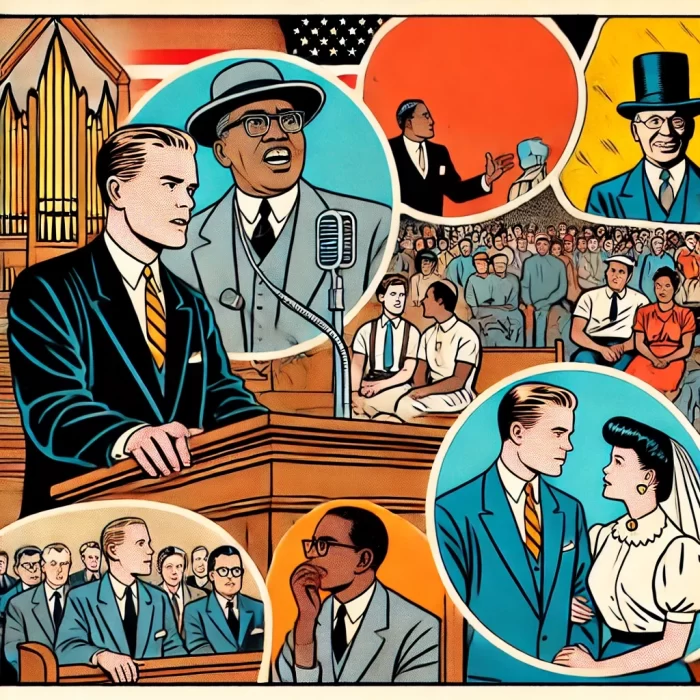
During the mid-20th century, some LDS apostles, including Mark E. Petersen, Ezra Taft Benson, and Joseph Fielding Smith, taught ideas opposing civil rights, interracial marriage, and the lifting of the priesthood and temple restrictions. These teachings reflected societal prejudices of their time and contributed to the perpetuation of exclusionary policies within the Church.
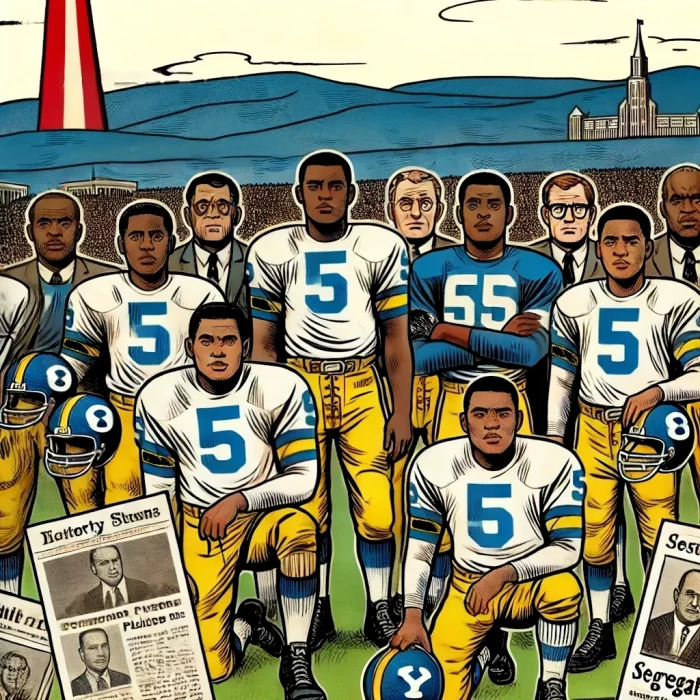
During the civil rights era, the Church’s university, Brigham Young University (BYU), faced significant challenges regarding racial integration and equality. In 1969, 14 Black football players from the University of Wyoming were dismissed from their team after protesting BYU’s racial policies by refusing to play. The incident underscored the tensions between civil rights and institutional policies, sparking widespread debate and scrutiny of the Church’s racial practices.
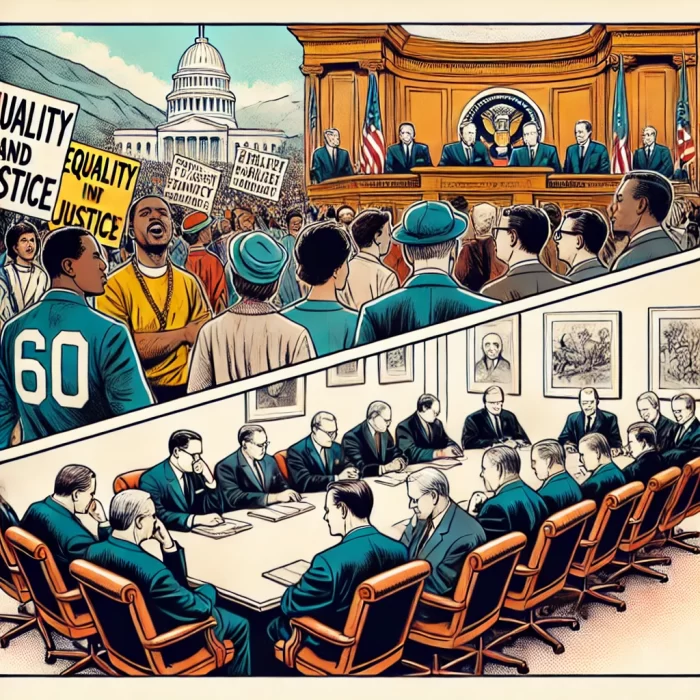
During the Civil Rights Movement, societal and global pressure mounted for equality. While protestors marched for justice, Church leaders began discussing the possibility of change. Some leaders and scholars believed there were no doctrinal reasons for the priesthood and temple restrictions, while others forcefully maintained that the ban was required by Heavenly Father. The era marked a turning point, with increasing recognition of the need to address racial equality within the Church.

In 1978, after years of prayer and deliberation, President Spencer W. Kimball and the Quorum of the Twelve Apostles reached a unanimous agreement during a meeting in the Salt Lake Temple to lift the priesthood and temple restrictions for Black members. The decision marked the end of a long-standing policy. Notably, two apostles, including Mark E. Petersen and Delbert L Stapley, were absent from the meeting due to their strong opinions about keeping the ban in place. This moment was a transformative step forward for the Church and its global membership.
Further reading:
- https://en.wikipedia.org/wiki/Elijah_Abel
- https://en.wikipedia.org/wiki/Act_in_Relation_to_Service
- https://en.wikipedia.org/wiki/Black_people_and_temple_and_priesthood_policies_in_the_Church_of_Jesus_Christ_of_Latter-day_Saints
- https://en.wikipedia.org/wiki/Interracial_marriage_and_the_Church_of_Jesus_Christ_of_Latter-day_Saints
- https://en.wikipedia.org/wiki/1969_Wyoming_Cowboys_football_team#%22Black_14%22_controversy
- https://en.wikipedia.org/wiki/1978_Revelation_on_Priesthood
- https://www.churchofjesuschrist.org/study/manual/gospel-topics-essays/race-and-the-priesthood?lang=eng
- https://bookshop.org/p/books/second-class-saints-black-mormons-and-the-struggle-for-racial-equality-matthew-l-harris/20950647?ean=9780197695715
